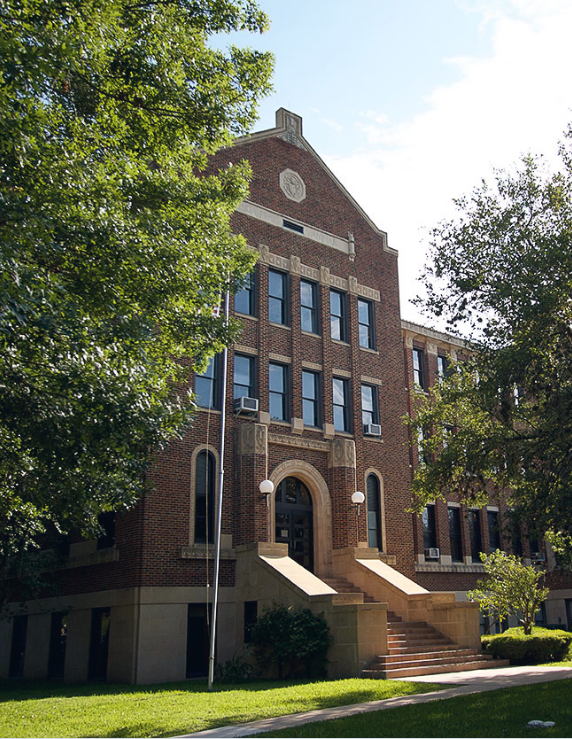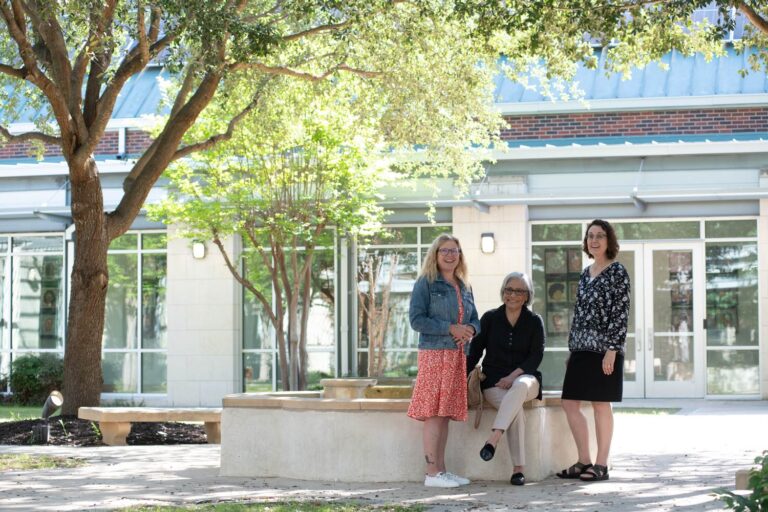A few years ago Pope Francis visited the Central African Republic to open the Holy Door for the Jubilee Year of Mercy. That country then was in the midst of civil war, and surely the security for the pope was having fits with his choice of where to go, but he did it. In Mexico the same year he chose to visit Chiapas, Morelia, and Juarez, all potentially dangerous areas where drugs and border violence had taken many lives. Again, I am sure the papal security was having coronaries. Why couldn’t the pope just talk about these problems from a distance? Why did he physically have to be there? Did he have a death wish? Is this a form of suicide? Why was he risking his life this way? He knows we need him. There are so many ways someone or a group could have taken his life. Thanks be to God no one harmed the pope, but it certainly got the attention of the world and helped us better understand what it means to place our lives on the line for those most in need. A good reflection for Good Friday!
The Corona Pandemic has thrust upon us the thought that a deadly virus could infect anyone. It can and has taken many lives. It has forced us to reflect on the fragility of life and how it is so short to do what God has sent us to do. We have to now live our lives with a conscious attitude to do what is needed to limit the spread of the illness in our community. This is literally a question of life and death. Many in our community know someone who is sick or a friend whose family member has contracted the virus. You might know someone sick. It forces you to think about your own life, it’s meaning and how the shadow of death is always part of our living.
I think that Pope Francis was first of all showing us what the Year of Mercy was about, namely compassion. Compassion is the walking with and accompanying someone in their suffering and pain. It is helping to carry the burden so they do not feel alone. The greatest suffering that a human being can have is the sense that I am in deep pain and no one cares. The pope showed us by risking his life that compassion is truly the willingness to give my life for the other, especially the most vulnerable. If God forbid someone would hurt the pope, it would not be a taking of life but a giving. That is what he is all about, and it is the only solution to a world where violence or poverty cause so much pain and suffering for so many millions. It is also disproportionately the poor and people of color that are contracting the corona virus globally at a higher rate than others.
It seems this is what John is trying to tell us in his eyewitness account of the passion and death of Jesus. Again, as last night at the Mass of the Last Supper we read the Gospel of John. Again, John, as last night, is different from the Synoptics, the other three gospels. Last night John emphasized the foot washing over the actual institution of the Eucharist emphasized by the other three. Today John shows Jesus in charge of the passion, instead of being the suffering servant. He knew they were coming to kill him. He could have avoided it, left town, gone into hiding, any number of ways to escape the horrific moment for him, yet he confidently moves forward to his death. He accepts his passion, goes to meet the ones who come to arrest him, answers the high priest in such a bold way that he is slapped by the guard, carries his own cross, and announces it is finished. Jesus chooses to do all this. His life is not taken from him, he gives it over. He chooses to give life so we could receive life. He chooses to die but then is raised to new life. This is the new covenant, a self giving that never ends. Jesus is not a victim. He is confident of the outcome. He freely shows compassion and gives life to the very end.
John constantly uses the theme of light and darkness. Jesus is the Light of the World and the powers of darkness are at battle with him. As Judas leaves the Last Supper, the gospel simply states, “…and it was dark.” When Judas and those coming to arrest Jesus in the garden arrive, in the other three gospels they come with swords and clubs. In this gospel they come with torches and lanterns because they needed lanterns to see in the midst of the powers of darkness that were controlling them.
John portrays Jesus in charge of his trial. No worldy power has control of Jesus. “You would have no authority if it were not given to you from above,” he tells Pilate. Pilate seems to be the one on trial. He succumbs to pressure and fear and because of that fear makes a decision that he knows is unjust and wrong. It is a lesson that we should reflect on about making decisions in a moment of fear, especially if it causes us to turn against another person or another group of people.
There are so many human stories in the passion account. Peter seems to be acting bravely when he cuts off the ear of the servant to defend Jesus, but then when the spotlight is on him there is no bravado as he betrays his Master. He ends up as the weak disciple versus the beloved disciple who is the loved one, present at the Last Supper, present at the trial, present at the foot of the cross and the empty tomb. The call of the beloved disciple was simply presence, not abandoning Jesus. He says nothing during the passion. He is simply there. He shows compassion which is a courageous act in the midst of threats, cruelty, fear, and death.
John’s narrative of the actual crucifixion is different from the other three gospels. It is the briefest of all the accounts. Again, Jesus is totally in charge. He carries his own cross, no Simon of Cyrene is mentioned. There are no crowds at the cross, no taunting, no mocking, no conversation between Jesus and the other two crucified men. Jesus does not speak from the cross out of need or desperation but to fulfill scripture. He gives his mother to the disciple and the disciple to his mother in a dramatic act of compassion. John’s gospel does not say Jesus dies, rather he “bowed his head, and delivered over his spirit.” Jesus’ life is not taken from him, he gives it. He gives us the Spirit with his last breath. He repeats this breathing the Spirit again over the disciples when he appears to them after the Resurrection and connects the Spirit with the power to forgive, another key act of compassion.
This moment, the moment of Good Friday, calls us to compassion, to just be there, to see ourselves accompany Jesus, to be next to him, to ask ourselves how we feel in the experience, to let it all just sink in. It is as when we are at the bedside of a loved one taking a last breath and it is sinking in. We don’t need to say anything. It is about compassion. The accompaniment and the letting go are intertwined. That might be why saying and walking the Stations of the Cross can be such a powerful experience today. Walk with Jesus.
At the same time the compassion also changes us if we allow it to come out. The being with another in pain, suffering, anxiety or physical need makes us realize that life is delicate and very fragile at best. It forces us to truly appreciate those around us and those who are in need in our world. It forces us to realize that we only have so much time on earth to do what needs to be done. We have limited moments to live compassion, limited resources to share it, yet it is the call we have been given to imitate the dying Jesus, who showed us how to give life for others.
After Jesus gives up his spirit, the soldier pierces his side and the account tells us Jesus’ blood and water flow out of his body. Baptism and Eucharist are given to the Church from the cross. The waters of Baptism are the beginning of a life in Jesus, a life of giving and service and compassion, which leads us to the table of the Eucharist in thanksgiving and commitment to each other. So many of us are missing the gathering around the table during this pandemic. We want to receive Eucharist and we will return to the table physically sometime in the near future. However, until then we have to be even more aware than ever that we are the Body of Christ. How can we live that, give that, love that in the midst of what we are going through today?
Good Friday 2020 asks the question: How can I live compassion in the midst of this pandemic? I can choose to give life. I can be compassionate. I can accompany in the midst of distancing. I can be present to other while I shelter in place. I can carry my cross behind Jesus. I can show Jesus who gives us His Spirit of compassion from the cross on this Good Friday.
 Fr. David Garcia is a retired priest from the Archdiocese of San Antonio, Texas, where he served for 44 years. During that time, Fr. Garcia was instrumental in the effort to have the Old Spanish Missions recognized as a UNESCO World Heritage Site and also oversaw the multimillion-dollar restoration of San Fernando Cathedral. Fr. David served as pastor for several parishes in San Antonio, including the historic Mission Concepción. He also served as Senior Advisor for Clergy Outreach at Catholic Relief Services, the official international humanitarian and relief agency of the US Conference of Catholic Bishops.
Fr. David Garcia is a retired priest from the Archdiocese of San Antonio, Texas, where he served for 44 years. During that time, Fr. Garcia was instrumental in the effort to have the Old Spanish Missions recognized as a UNESCO World Heritage Site and also oversaw the multimillion-dollar restoration of San Fernando Cathedral. Fr. David served as pastor for several parishes in San Antonio, including the historic Mission Concepción. He also served as Senior Advisor for Clergy Outreach at Catholic Relief Services, the official international humanitarian and relief agency of the US Conference of Catholic Bishops.



